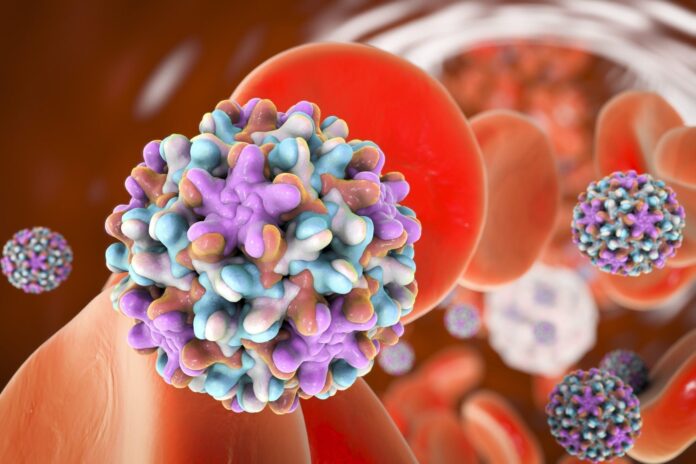Hepatitis C is a viral infection that causes inflammation of the liver. It is caused by the hepatitis C virus (HCV) which is usually spread through contact with infected blood.
Causes:
The hepatitis C virus is usually spread through contact with infected blood. This can occur through: Sharing needles or other injection equipment Receiving a blood transfusion or organ transplant before 1992 (when screening for HCV in donated blood became standard practice)
Receiving medical treatment with non-sterile equipment in countries where infections are common Having unprotected sex with an infected person Being born to a mother who has HCV
Symptoms:
Many people with hepatitis C have no symptoms and may not know they are infected. When symptoms do occur, they may include:
1_Fatigue
2_Nausea or vomiting
3_Loss of appetite
4_Abdominal pain
5_Dark urine
6_Clay-colored stools
7_Joint pain
8_Jaundice (yellowing of the skin and eyes)
Diagnosis:
Hepatitis C is usually diagnosed with a blood test that detects antibodies to the virus. If the test is positive, a second test will be done to confirm the presence of the virus. Additional tests may be done to determine the extent of liver damage and the best course of treatment.
Treatment:
The goal of treatment for hepatitis C is to clear the virus from the body and prevent liver damage. The treatment usually involves antiviral medications taken for several months. The choice of medication and duration of treatment depends on the type of HCV infection and the extent of liver damage.
In some cases, a liver transplant may be necessary if the liver is severely damaged. It is important for people with hepatitis C to avoid alcohol and to take steps to protect their liver, such as getting vaccinated against other hepatitis viruses and avoiding certain medications that can be harmful to the liver.
































